
Naming every expedition participant in a telepresence-enabled mission is next to impossible! Many from dozens of institutions across the country have provided input into the expedition plan and are expected to participate. However, we've assembled information about the members of the science and remotely operated vehicle teams who are physically onboard NOAA Ship Okeanos Explorer, and whose voices you are likely to hear most often when watching the live video.
And of course, none of this exploration would be possible without the work of the dedicated NOAA Commissioned Officer Corps and civilians who operate NOAA Ship Okeanos Explorer as part of NOAA's fleet managed by NOAA's Office of Marine and Aviation.
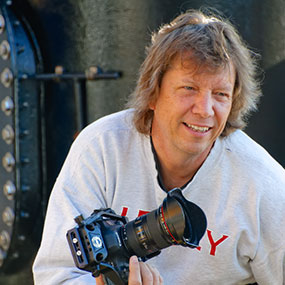
Photographer and Producer
For 34 years, Emmy-award winning photographer and producer Art Howard has helped viewers experience life through images from 50 countries and seven continents. A native North Carolinian, Art has followed researchers aboard multiple deep-sea missions, documenting the excitement and challenges of offshore reef exploration. Art will use the latest video technology to bring viewers as close as possible to life at sea from the surface to depths of 3,000 feet, capturing both the scientists and the life they seek to understand. Howard has spent the last 11 years independently producing media for the North Carolina Museum of Natural Sciences.
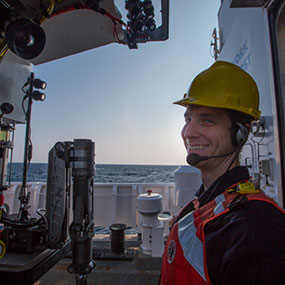
Systems/Robotics Engineer, Autonomous and Remotely Operated Underwater Vehicles
Bobby Mohr is a Systems/Robotics Engineer, specializing in autonomous and remotely operated underwater vehicles. He holds a B.S. in physics and graduated cum laude from Davidson College in 2009. Bobby started his career as an engineering technician with Greensea Systems where he was responsible for the design, development, and testing of autonomous underwater vehicle control systems. Like many of our engineers, Bobby realized that he would enjoy the design-build process more if he was able to also pursue the challenges of making vehicles work successfully at sea. After serving on several projects at Greensea where he specialized in electrical and software systems support, Bobby joined the Ocean Exploration program as an electrical systems engineer. During his time at Greensea and now with NOAA, he has been one of the key electrical engineers on the development of our 6000-meter-rated remotely operated vehicle system, Deep Discoverer and Seirios. Like many of our engineers, he has multiple skills and is a tremendous asset to our program.
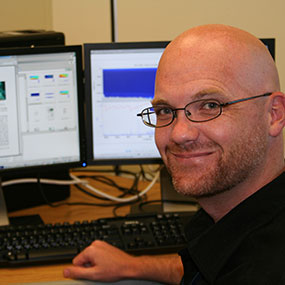
Oceanographer/Data Manager, NOAA Office of Ocean Exploration and Research
Brendan Reser is an oceanographer responsible for integrating telepresence with data management aboard the NOAA Ship Okeanos Explorer. He ensures that exploration data collections are accessible to shoreside participants during and after the expedition. Brendan specializes in automating processes and in developing unique data display capabilities. Prior to joining NOAA, Brendan was involved in field sampling and data management efforts in response to the Deepwater Horizon incident. Brendan has a Master of Science degree in Oceanography from Oregon State University and a Bachelor of Science degree in Biology from the University of New Mexico. He is currently employed by General Dynamics Information Technology, and is contracted to support NOAA's Office of Ocean Exploration and Research through NOAA’s National Coastal Data Development Center (NCDDC). His operational base is the NOAA field office located at NCDDC, Stennis Space Center, Mississippi.
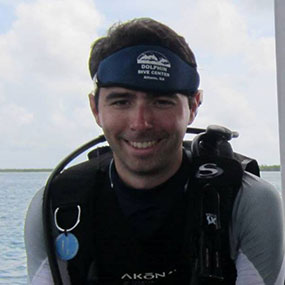
Expedition Coordinator
NOAA Office of Ocean Exploration and Research
When Brian was five years old, he decided that he wanted to be a marine biologist and explore the unknown reaches of the planet, and now he has his dream job. Originally from land-locked Athens, Georgia, Brian grew up fascinated with marine mammals and the ocean. Brian attended the Honors College at the College of Charleston (CofC) in South Carolina where he majored in Marine Biology and minored in Marine Geology. While at CofC, he had the opportunity to sail on multiple research cruises aboard two different NOAA research vessels and meet multiple NOAA Commissioned Officer Corps members. Shortly after graduating with honors from CofC, Brian was awarded a commission in the NOAA Corps. His first sea assignment was as a Junior Officer aboard NOAA’s Okeanos Explorer, America’s Ship for Ocean Exploration. Upon completion, Brian was then assigned to NOAA’s Ocean Exploration Program, where he is now an Expedition Coordinator for the Okeanos Explorer. Brian has participated in or led more than 25 expeditions of exploration taking him to two oceans (Atlantic and Pacific), three continents (North America, South America and Asia), and through the waters of more than five countries (Ecuador, Panama, Costa Rica, Honduras, Indonesia). As Expedition Coordinator, Brian is responsible for overseeing all aspects of an expedition, including arranging logistics, planning science operations, obtaining international clearances, and coordinating public outreach.
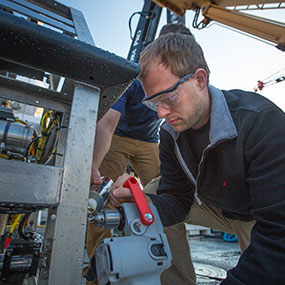
ROV Engineer and Telepresence Team Member
Daniel Rogers brings with him a diverse background in engineering, media production, and education. Daniel holds a B.S. in physics and received an M.S. in mechanical engineering from the University of Hawaii in 2013. His graduate work focused on the development and evaluation of an autonomous marine vessel designed for port and harbor security missions. Before starting his graduate program, Daniel worked as a science educator at the Bishop Museum in Honolulu where he continued as a digital media producer while in school. A lifelong interest in the sciences inspires him to learn all he can about the natural world and he is passionate about sharing the drama, allure, and wonder of scientific inquiry with others. Daniel currently works as a media producer and autonomous systems engineer in Honolulu, Hawaii.
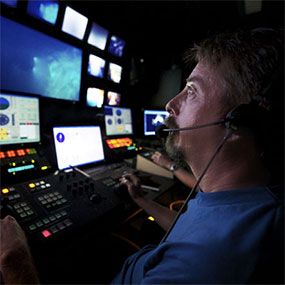
Electrical Engineer
Dave Wright joined the Ocean Exploration Program in 2009, bringing a set of skills that most would envy. A self-taught engineer, he is highly respected in the field of underwater technology, having spent a great deal of time working with Dr. Robert Ballard at the Institute for Exploration and as a valued member of the Monterey Bay Aquarium Research Institute. Dave is one of our senior pilots and in addition to being an outstanding and invaluable electrical engineer, he is one of our most valued and respected mentors to the younger generation we seek to train. Dave is a veteran of some of the earlier Ocean Exploration projects, having served as pilot on the 2004 Titanic cruise, the 2004 and 2005 Mountains in the Sea cruises, and the 2005 cruise to Lost City. He is a co-inventor of the 'Aquatic Autosampler,' a fully automated system for in situ species identification of toxic phytoplankton, which was developed while he worked at the Monterey Bay Aquarium Institute. When not on assignment with Ocean Exploration, Dave resides in Louisville, Kentucky.
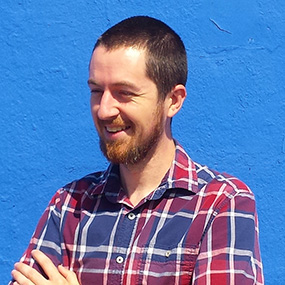
Physical Scientist
James J. Miller is a Physical Scientist at NOAA’s Office of Coast Survey, where he evaluates hydrographic surveys, conducts quality assurance reviews, augments aboard NOAA vessels, compiles marine navigation products, and develops improvements to hydrographic data management and processing. He holds a B.Sc. in Geology and Environmental Geosciences from the College of Charleston, South Carolina.
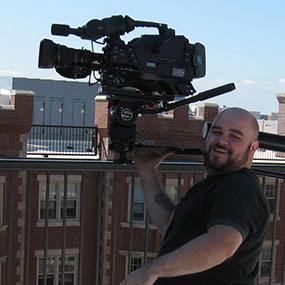
Telepresence Engineer, NOAA Office of Ocean Exploration and Research
Jared Drewniak is a New England native with a passion for science, technology, and story telling. Over the course of his career he has been an improv comedian, a crime reporter in New York City, a Distance Education Technical Director at Harvard, a Field Operations coordinator at the Massachusetts Institute of Technology (MIT), and freelance education consultant. His early work with Northeastern University and MIT helped pioneer technology and techniques for distance learning that have become standard practice today. He was an early entrant into the nascent field of Massive Online Open Course education and produced some of the first courses featured on EdX. His live broadcast work with both the International Space Station (for NASA TV and MIT) and the Okeanos Explorer deep-sea exploration program (for NOAA) means he has connected some of the highest and deepest live broadcast origins in the history of mankind. He remains unsure if this qualifies as a Guinness World record or not.
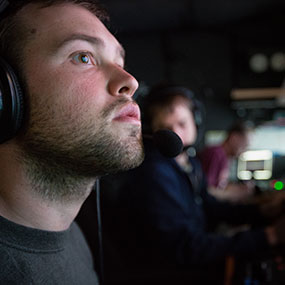
Electrical Engineer
Jeff Laning holds a B.S. in Electrical Engineering from the University of Vermont. His career started as an intern with Greensea Systems, Inc. where he worked on design, development, and integration of components and software associated with remotely operated vehicles and autonomous underwater vehicle systems. Jeff is one of youngest members and comes to our group with a great attitude for learning new and relatively complex electrical systems. Electrical engineers interested and capable of working on deep submergence systems are one of the hardest positions to fill. Jeff has done a great job for us and continues to build his experience under the guidance of some of our older and more experienced mentors. He was a key member of the team that built Deep Discoverer and has become a skilled navigator and is currently training as one of our pilots. His contribution to ocean exploration is certainly something to be proud of and we hope that other young engineers will be inspired by what he has accomplished. Jeff currently resides in Rhode Island.
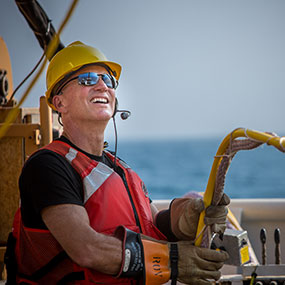
Electrical Engineer
With five U.S. patents and multiple publications outlining autonomous underwater vehicle (AUV) research under his belt, Jeff Williams has contributed more than his fair share to ocean exploration and engineering. Williams graduated from the Rochester Institute of Technology with an Electrical Engineering Degree, Highest Honors, and a driving sense of curiosity and adventure. After working as an engineer for firms including Raytheon and Ascom/Timeplex, Jeff set out to circumnavigate the globe; a voyage that would take him 40,000 miles and five years to complete.
It is at the convergence of this knowledge, skill, and experience that Jeff was to become an autonomous and remote underwater vehicle specialist. An accomplished pilot, navigator, and engineer, Jeff has a holistic understanding of the systems and techniques required to explore one of the most unforgiving environments on our planet. In 2010, Jeff worked with the National Research Council Canada to deploy an AUV for 10 days under Canadian Arctic Ice, an expedition risky to equipment and personnel alike. And while Jeff works in some of the most inhospitable environments on the planet, his up-beat disposition and sense of humor make him a pleasure to work with. He has been with theOkeanos Explorer program since 2011 where he's helped explore the deepest portions of the Mid-Cayman Rise, Galapagos Spreading Center, Gulf of Mexico, and Northeast Canyons.
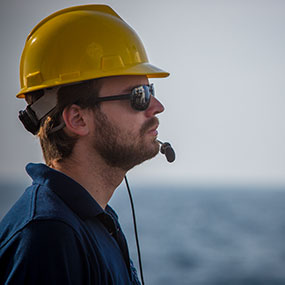
Mechanical Engineer
Joshua Carlson attended the University of Massachusetts, Dartmouth, where he received a B.S. in Mechanical Engineering with minor in Business Administration. He went on to receive his M.S. in Marine Observation Technology from the University of Massachusetts, Dartmouth School for Marine Science and Technology. Josh has a diverse background, encompassing the use of autonomous underwater vehicles (AUVs) and other types of ocean observation platforms for the purpose of studying ocean turbulence. He has designed and built a deep-ocean camera platform for filming deep-water krill in the Antarctic Ocean and provided mechanical engineering and software capabilities on the Woods Hole Oceanographic AUV Sentry during a recent cruise aboard the NOAA ship Okeanos Explorer. In his current position with NOAA’s Ocean Exploration program, Josh provides engineering, programming, and at-sea support, acting in the capacity of navigator, pilot, and co-pilot for NOAA’s 6000-meter-rated remotely operated vehicle system, Deep Discoverer. His broad range of skills in both engineering and software control development makes him an invaluable member of our team. When not traveling, Josh resides in Fairhaven, Massachusetts.
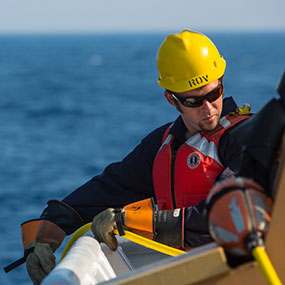
Ocean/Mechanical Engineer
Karl McLetchie is a graduate of the Massachusetts Institute of Technology. He holds B.S. and M.S. degrees in Ocean and Mechanical Engineering. After graduating, he worked as an engineer on the development of autonomous underwater vehicles and as a naval architect on the design of high-speed aluminum vessels. After a brief, two-year stint of delivering sailboats around the Caribbean, he started his own contracting company, SeaKnowledge, in 2008. Through SeaKnowledge, Karl works on the mechanical design and operation of underwater vehicles. Karl has worked on Okeanos Explorer for six seasons, in all positions on the ROV Team from Winch Operator to Dive Supervisor. When not on assignment for Ocean Exploration, Karl resides in Pemaquid, Maine.
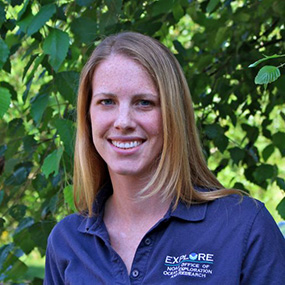
Physical Scientist/Hydrographer, NOAA Office of Ocean Exploration and Research
Lindsay earned her master's in Ocean Mapping from the University of New Hampshire in 2013 and her bachelor's degree in Geological Sciences from Brown University in 2007. Lindsay worked as a geologist in the environmental field for three years before returning to graduate school. In graduate school, Lindsay gained practical seafloor-mapping experience during research cruises to the Mediterranean Sea and Arctic Ocean. Lindsay joined the Ocean Exploration program in early 2014 as a Mapping Team Lead, where she is responsible for the ocean mapping systems onboard the NOAA Ship Okeanos Explorer. At sea, Lindsay produces maps that are used to direct the exploration process and plans the day-to-day mapping routes to ensure the ship is always exploring efficiently.
On shore, Lindsay works at the Integrated Ocean and Coastal Mapping Center at the University of New Hampshire where she contributes to expeditions through data processing and archiving, operational planning, and mapping product development. Lindsay resides in Rye, New Hampshire.
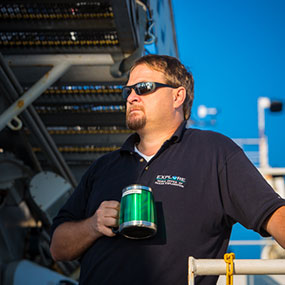
Electronic Systems Engineer
Roland Brian brings 29 years of experience and a keen eye for precision HD video to the program as a video/satellite and telepresence engineer. Roland began his career in the U.S. Air Force where he worked as a Satellite Communications Engineering Technician with visions of working on the U.S. Space Station. He traded in that quest for one of deep-ocean exploration and sharing beautiful imagery with the world. He has worked with the NOAA Office of Ocean Exploration and Research (OER) and the Okeanos Explorer Program since 2009 and has been engaged in every telepresence-enabled remotely operated vehicle (ROV) expedition. He has also provided services for other projects using OER’s mobile telepresence system, including the 2012 Ring of Fire Expedition. His duties aboard NOAA Ship Okeanos Explorer include operation and maintenance of the ship's Telepresence and video systems, including on ROV Deep Discoverer and the Seirios camera platform. Again, Roland’s experience embodies the breadth and depth of knowledge the OER program encourages. When not fine-tuning the video and telepresence systems or training and mentoring new team members, he's actively involved in the editing process of our ever-expanding ocean exploration video library. While not at sea, Roland enjoys life with his wife and family in sunny Sarasota, Florida.
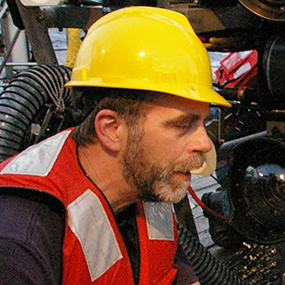
Associate Professor of Biology, University of Louisiana at Lafayette
Scott France studies the evolution of deep-sea invertebrates. He was attracted to a career in marine biology when, as a fine arts major at Concordia University, he took an elective course in oceanography and was captivated learning about the discovery of deep-sea hydrothermal vents. That new knowledge drove his desire to visit and explore the deep sea himself, and he immediately switched majors to Biology. Scott earned his B.S. in Biology at Concordia University in 1986 and a PhD in Oceanography from the Scripps Institution of Oceanography, University of California, San Diego, in 1992. He has held postdoctoral positions at the Woods Hole Oceanographic Institution, the University of New Hampshire, and Harvard University and taught Evolution at Bowdoin College. He was on the faculty of the College of Charleston from 1997-2003, and received the Ray P. Authement College of Sciences Outstanding Professor Award at the University of Louisiana at Lafayette, where he has been a faculty member since 2004. Over his career, he has visited the deep-ocean floor off the Mariana Islands, Hawaii, Galapagos, California, Bahamas, and the western North Atlantic, and has previously participated in Okeanos Explorer telepresence-enabled missions as a scientist-on-shore. He and his students have analyzed genetic variation of deep-sea invertebrates, and in particular in deep-sea octocorals, from a variety of habitats, including hydrothermal vents, abyssal plains, seamounts, canyons, and trenches. Scott currently resides in Lafayette, Louisiana.
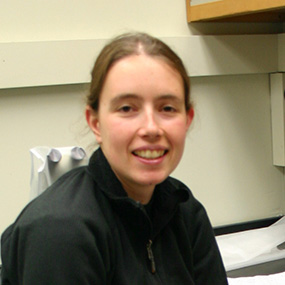
PhD Graduate Student, Geology and Geophysics, College of Earth, Ocean, and Atmospheric Sciences, Oregon State University
Susan Schnur is a fourth-year PhD student in marine geology at Oregon State University. She holds an M.Sc. in Geography/GIS from the University of Zürich and a B.A. in Geology from Carleton College. Susan’s research interests cover a wide range of topics relating to intra-plate seamount formation and submarine volcanism. She is currently studying the evolution of the young Walvis Ridge guyot province in the South Atlantic using 40Ar/39Ar geochronology, a method for measuring the ages of rocks based on the slow radioactive decay of the elements potassium (K) and argon (Ar). Susan also has strong interests in digital terrain analysis and image processing and has previously worked on image analysis methods for automatically extracting tectonic features from bathymetric maps. As a PhD student, Susan has had the opportunity to sail on UNOLS vessels as part of two expeditions to dredge seamounts in the South Atlantic and the West Pacific. Susan hopes to one day pursue a career in seafloor mapping or marine geological consulting.
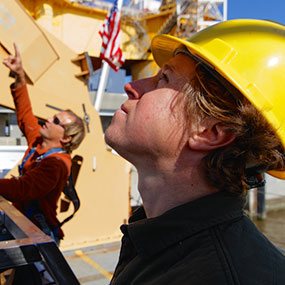
Leg 3
Mechanical Engineer
Todd Gregory received his B.S. in Naval Architecture and Marine Engineering from Webb Institute in 1999 and his M.S. of Ocean Engineering from the University of Hawaii at Manoa in 2001. From 2002 to 2010, Todd was employed by Dr. Robert Ballard’s Institute for Exploration, where he served as the principle mechanical/ hydraulic designer for the remotely operated vehicle (ROV) system Hercules. He has served as a Guest Investigator at the Woods Hole Oceanographic Institution and as an Associate Marine Development Engineer at the University of Rhode Island-Graduate School of Oceanography and is currently a Mechanical Engineering Consultant to NOAA’s Office of Ocean Exploration and Research (OER). Todd is our principle mechanical engineer for OER’s 6000-meter rated, two-body ROV system Deep Discoverer and Seirios, and is one of the chief pilots during our offshore operations. He has participated in numerous international research expeditions and is a tremendous asset to the oceanographic community.His efforts in mentoring our newer engineers and impeccable attention to detail are but a few of his many contributions to the Ocean Exploration program.Todd currently resides in North Kingstown, Rhode Island.